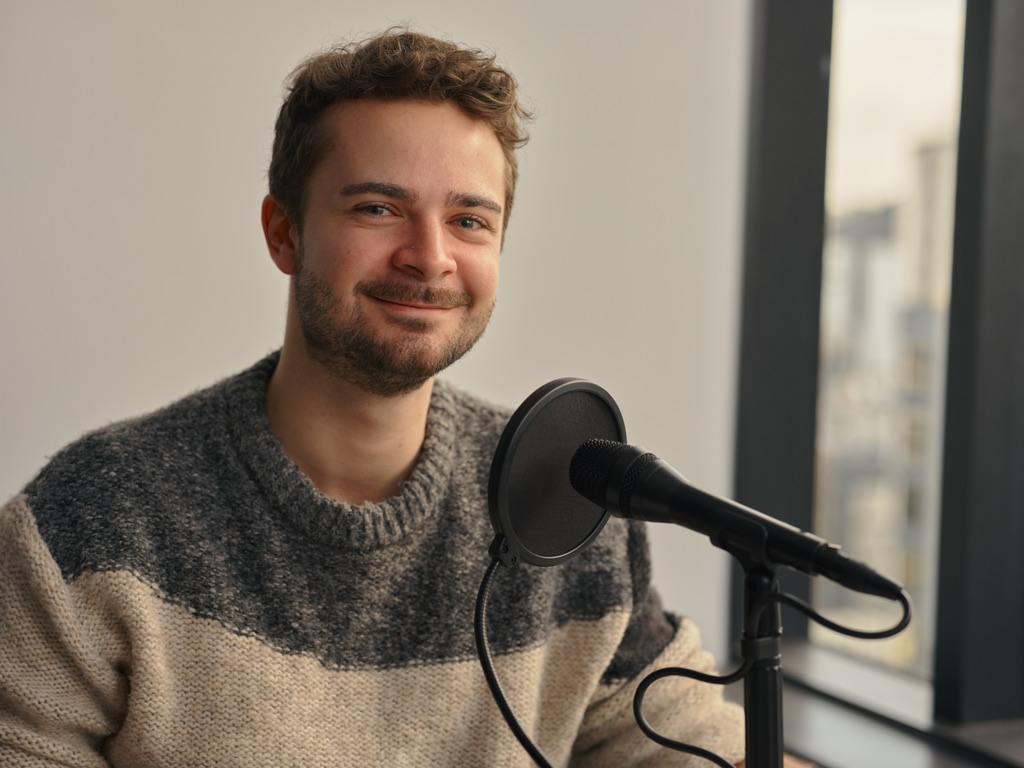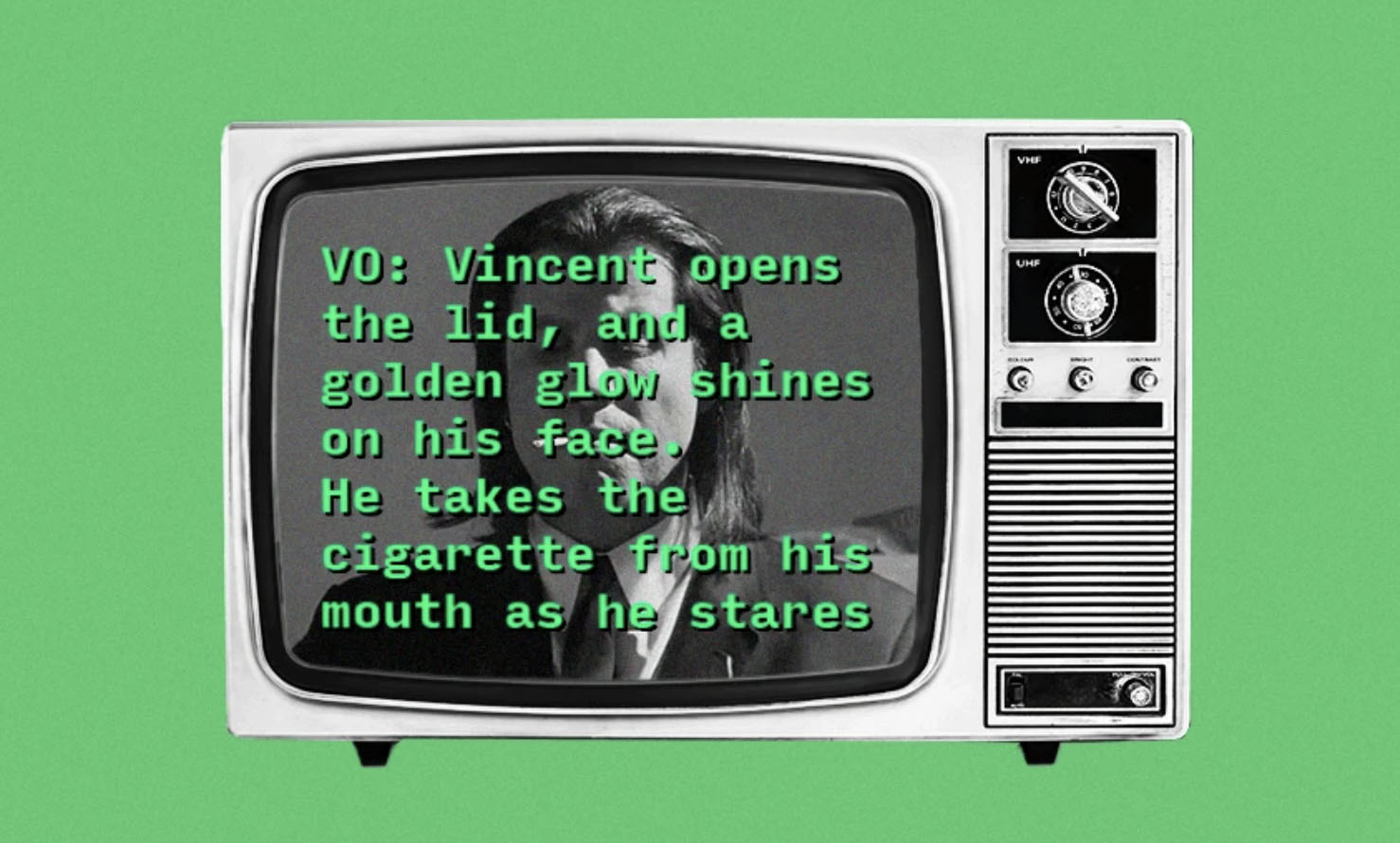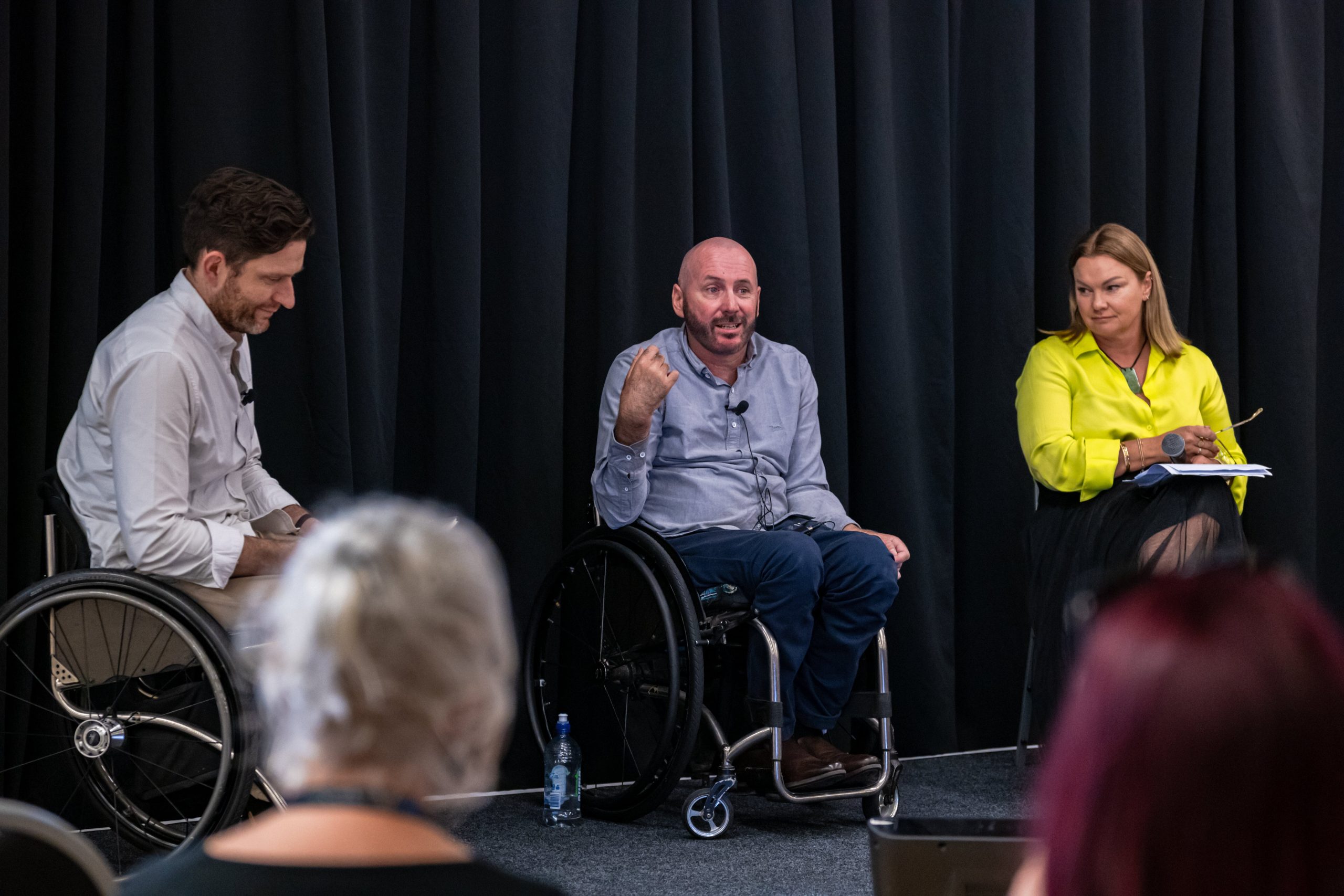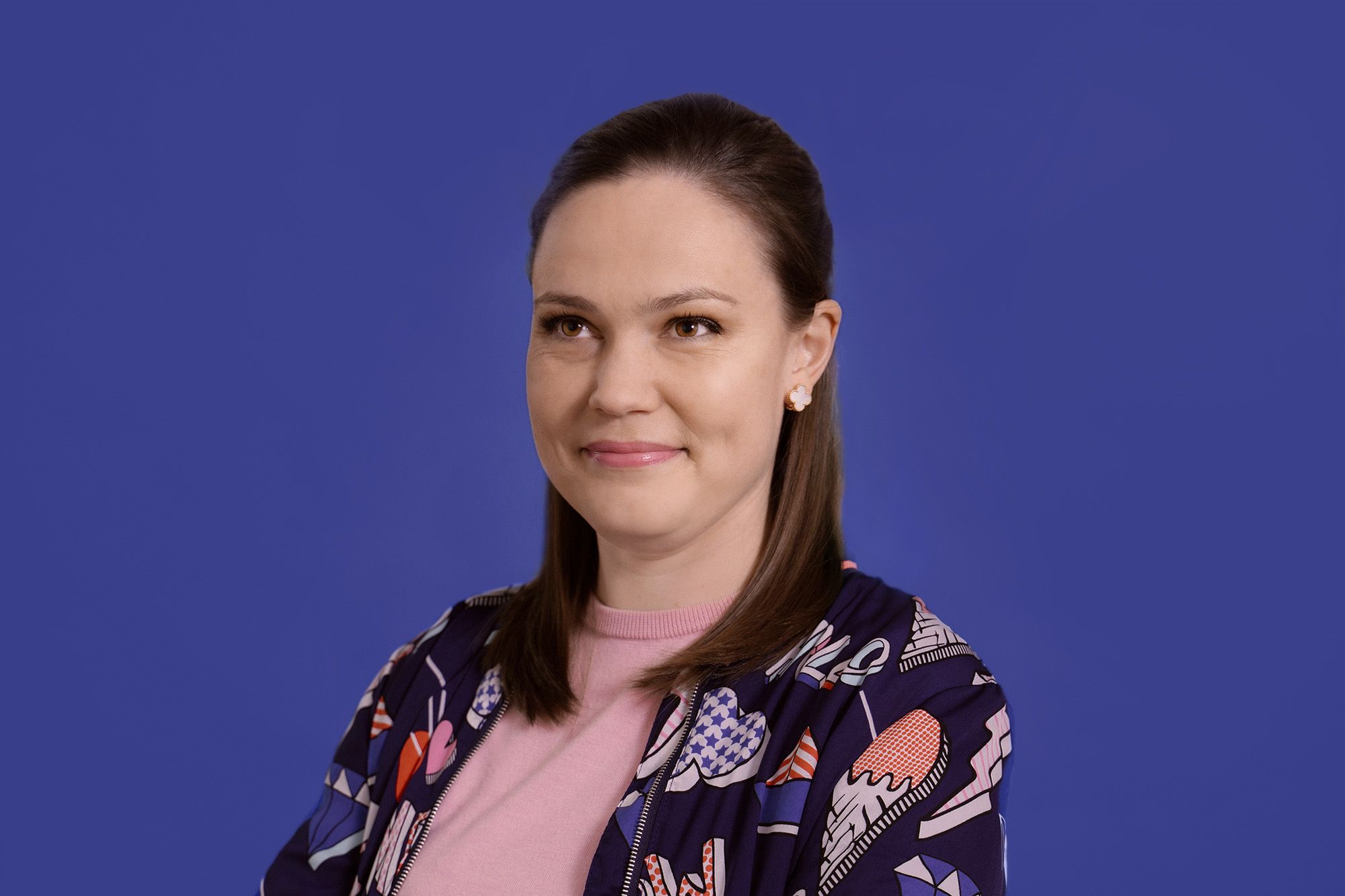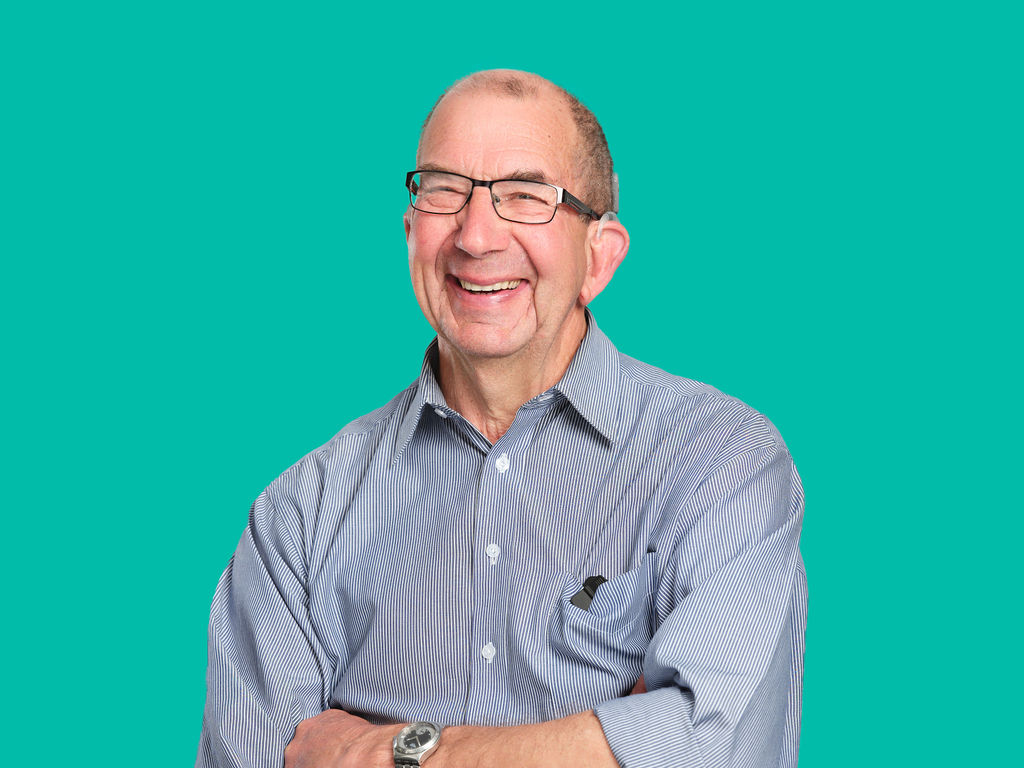
Recently, Gabriella Evans from Able’s Communications team sat down with Stella Huggins from 95bFM to kōrero about the 2023 Listen Up conference which returned to in-person attendance after 3 years of postponement due to COVID-19. They also discussed workplace inclusion for d/Deaf employees, Gaby’s journey of learning sign language, and the accessibility of captions during the 2000s.
Listen to the full interview here, or read the transcript below.
Stella Huggins: Thank you so much for coming in. Do you want to tell the audience and me a little bit about yourself and what your role is at Able?
Gabriella Evans: As you’ve said, my name is Gaby. I am part of the communications team at Able, which is an organisation that provides access to deaf and blind or low-vision people in the form of audio descriptions and captions.
Stella Huggins: Do you want to tell us a little bit about your journey with deafness? Do you remember getting your cochlear implants and what was that like for you?
Gabriella Evans: I was born deaf, but I wasn’t diagnosed until I was two years old. I used a hearing aid throughout my life until I was about 18 when I got my cochlear implants, and that was in 2016.
Stella Huggins: You are bilingual and you speak two of Aotearoa’s official languages. Can you tell us about learning New Zealand Sign Language?
Gabriella Evans: Some people might not know this, but I didn’t grow up signing. Originally when I was a really small child, I did sign but that was through a method called Makaton/Johansson method. And that was more of a pathway or a bridge to eventually speaking, and then once I went into school, I basically forgot all sign language I even had. And that went on for about 10 years. Then when I was 14, I moved up to Auckland to attend Kelston Deaf Education Centre, which is now called Ko Taku Reo. And because I was boarding there as well, a lot of the staff at the boarding school were Deaf and used NZSL. So I learned from them and other students. It was a full immersion environment.
Stella Huggins: How has your own experience influenced your understanding of the importance of accessibility and life in general?
Gabriella Evans: I can speak to that a little bit about captions and my experience in KDEC. Growing up, I was a 2000s kid, and especially a 2000 kid in rural New Zealand, it was dial-up. So we really did not have access to Google, we knew it was a thing but we didn’t really use it to look up and know things. The only real kind of access to TV or knowing even what was going on TV was the TV Guide. And unfortunately, the TV Guide at the time basically had nothing about how to access Teletext, which was how people accessed captions back in the day. It wasn’t until I moved to KDEC that I discovered how to use captions and even turn on Teletext because it was through the Deaf adults working there and the other Deaf students passing on that knowledge, being really eager to go ‘This is how you do it. You just pick up the remote, punch in this code, and it’ll come on the TV’, and it was like ‘Wow. I did not know this’. Something that small actually changed a lot of things for me.
Stella Huggins: On that note, the Listen Up conference is happening on World Hearing Day, which is on Friday. It’s an incentive for organizations to really look at how they’re thinking about diversity and inclusion. How can more workplaces become inclusive of Deaf culture and employees?
Gabriella Evans: The first thing I would say is, if you have a deaf employee or a client, or someone you’re working with regularly, they might have already come to you and said ‘Hey, this is what works for me’ and explained their situation. But I would always say just be open to an open door policy. Just say ‘Come and talk to me anytime if there’s something that is not going quite right for you. Or if you would like this to be changed’. Make it known that you’re willing to work with them.
Stella Huggins: What advice would you give to listeners or our audience in general about how to interact with people who are deaf or hard of hearing?
Gabriella Evans: If it’s not a regular kind of environment like the workplace, say if you just had a deaf customer come into your store, this will not be that person’s first kind of dance and let them take the lead. If they show you what they want on the notes app on their phone, or if they ask for a pen and paper, let them take the lead because they will have experienced it many times. This might be your first time but for them, it will be one of many times so they’ll be well-versed in how to do it.
